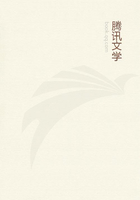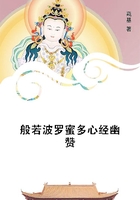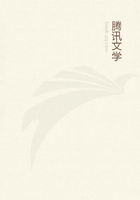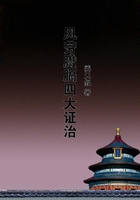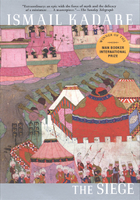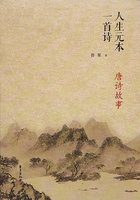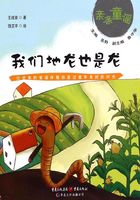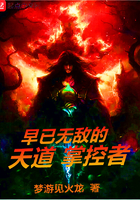The savage and brutal character of the invention needs no demonstration. Among very low savages, for example, the Tinnehs of British North America, not a man, not a god, but a DOG, is torn up, and the fragments are made into animals. On the Paloure River a beaver suffers in the manner of Purusha. We may, for these reasons, regard the chief idea of the myth as extremely ancient--infinitely more ancient than the diction of the hymn.
Ancient Sanskrit Literature, 570.
Sanskrit Texts, 2nd edit., i. 12.
Sanskrit Text, 2nd edit., ii. 463.
Hearne's Journey, pp. 342-343.
As to the mention of the castes, supposed to be a comparatively modern institution, that is not an essential part of the legend.
When the idea of creation out of a living being was once received it was easy to extend the conception to any institution, of which the origin was forgotten. The Teutonic race had a myth which explained the origin of the classes eorl, ceorl and thrall (earl, churl and slave). A South American people, to explain the different ranks in society, hit on the very myth of Plato, the legend of golden, silver and copper races, from which the ranks of society have descended. The Vedic poet, in our opinion, merely extended to the institution of caste a myth which had already explained the origin of the sun, the firmament, animals, and so forth, on the usual lines of savage thought. The Purusha Sukta is the type of many other Indian myths of creation, of which the following one is extremely noteworthy. "Prajapati desired to propagate. He formed the Trivrit (stoma) from his mouth. After it were produced the deity Agni, the metre Gayatri, . . . of men the Brahman, of beasts the goat; . . . from his breast, and from his arms he formed the Panchadasa (stoma). After it were created the God Indra, the Trishtubh metre, . . . of men the Rajanya, of beasts the sheep. Hence they are vigorous, because they were created from vigour. From his middle he formed the Saptadasa (stoma). After it were created the gods called the Yisvadevas, the Jagati metre, . . .
of men the Vaisya, of beasts kine. Hence they are to be eaten, because they were created from the receptacle of food." The form in which we receive this myth is obviously later than the institution of caste and the technical names for metres. Yet surely any statement that kine "are to be eaten" must be older than the universal prohibition to eat that sacred animal the cow.
Possibly we might argue that when this theory of creation was first promulgated, goats and sheep were forbidden food.
Taittirya Sanhita, or Yajur-Veda, vii. i. 1-4; Muir, 2nd edit., i. 15.
Mr. M'Lennan has drawn some singular inferences from this passage, connecting, as it does, certain gods and certain classes of men with certain animals, in a manner somewhat suggestive of totemism (Fornightly Review), February, 1870.
Turning from the Vedas to the Brahmanas, we find a curiously savage myth of the origin of species. According to this passage of the Brahmana, "this universe was formerly soul only, in the form of Purusha". He caused himself to fall asunder into two parts.
Thence arose a husband and a wife. "He cohabited with her; from them men were born. She reflected, 'How does he, after having produced me from himself, cohabit with me? Ah, let me disappear.'
She became a cow, and the other a bull, and he cohabited with her.
From them kine were produced." After a series of similar metamorphoses of the female into all animal shapes, and a similar series of pursuits by the male in appropriate form, "in this manner pairs of all sorts of creatures down to ants were created". This myth is a parallel to the various Greek legends about the amours in bestial form of Zeus, Nemesis, Cronus, Demeter and other gods and goddesses. In the Brahmanas this myth is an explanation of the origin of species, and such an explanation as could scarcely have occurred to a civilised mind. In other myths in the Brahmanas, Prajapati creates men from his body, or rather the fluid of his body becomes a tortoise, the tortoise becomes a man (purusha), with similar examples of speculation.
Satapatha Brahmana, xiv. 4, 2; Muir, 2nd edit., i. 25.
Similar tales are found among the Khonds.
Among all these Brahmana myths of the part taken by Prajapati in the creation or evoking of things, the question arises who WASPrajapati? His role is that of the great Hare in American myth; he is a kind of demiurge, and his name means "The Master of Things Created," like the Australian Biamban, "Master," and the American title of the chief Manitou, "Master of Life", Dr. Muir remarks that, as the Vedic mind advances from mere divine beings who "reside and operate in fire" (Agni), "dwell and shine in the sun"(Surya), or "in the atmosphere" (Indra), towards a conception of deity, "the farther step would be taken of speaking of the deity under such new names as Visvakarman and Prajapati". These are "appellatives which do not designate any limited functions connected with any single department of Nature, but the more general and abstract notions of divine power operating in the production and government of the universe". Now the interesting point is that round this new and abstract NAME gravitate the most savage and crudest myths, exactly the myths we meet among Hottentots and Nootkas. For example, among the Hottentots it is Heitsi Eibib, among the Huarochiri Indians it is Uiracocha, who confers, by curse or blessing, on the animals their proper attributes and characteristics. In the Satapatha Brahmana it is Prajapati who takes this part, that falls to rude culture-heroes of Hottentots and Huarochiris. How Prajapati made experiments in a kind of state-aided evolution, so to speak, or evolution superintended and assisted from above, will presently be set forth.
Bergaigne, iii. 40.
Avila, Fables of the Yncas, p. 127.
English translation, ii. 361.

